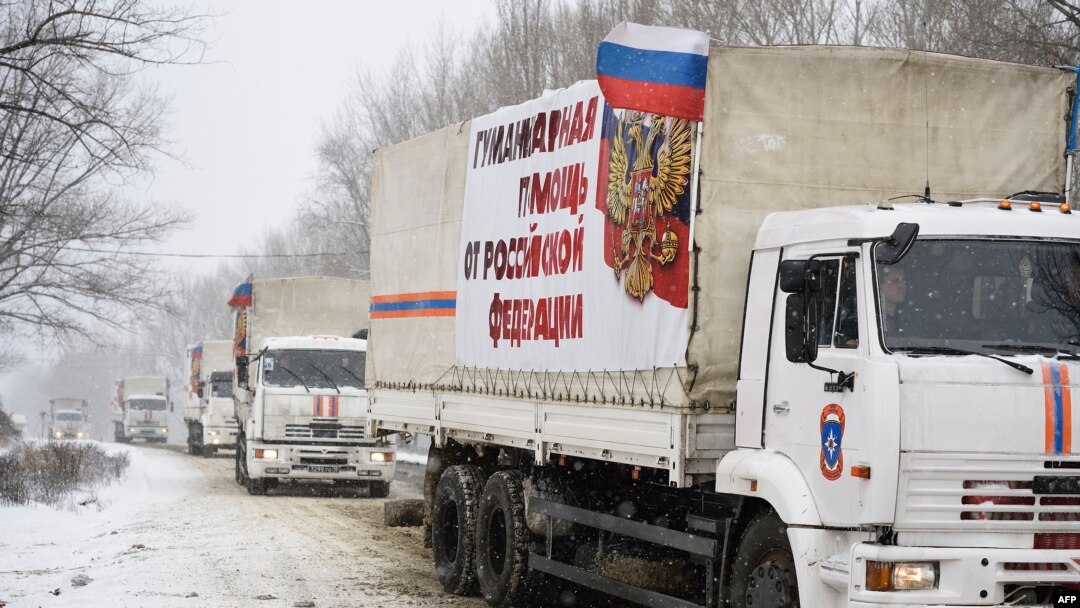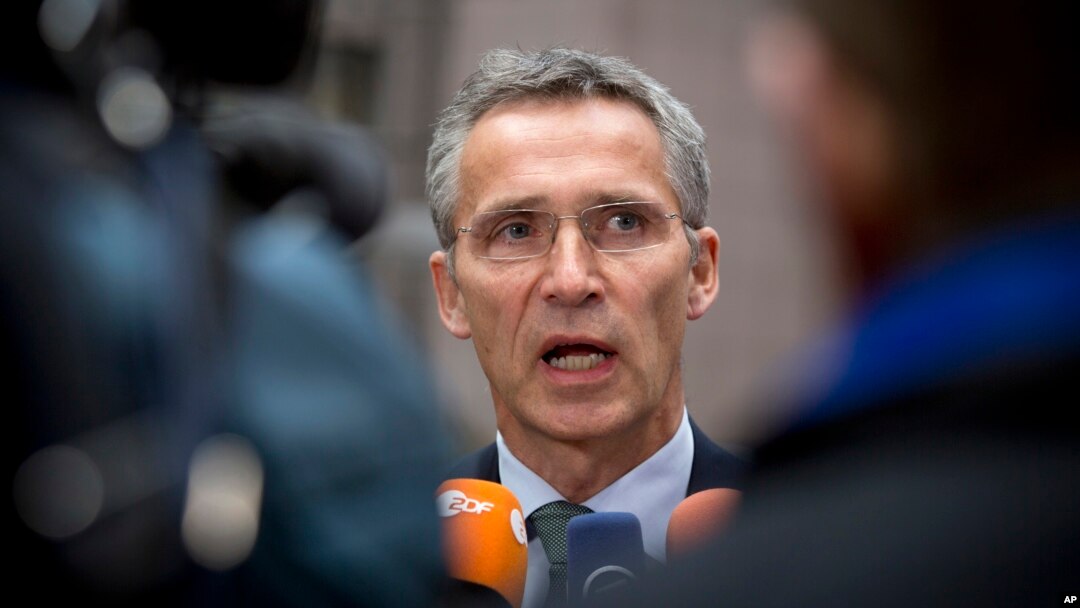NATO says Russia is violating a truce in eastern Ukraine by sending in convoys with advanced weapons and personnel reinforcements for pro-Russia separatists fighting Ukrainian government troops.
“We see a significant military buildup in and around Ukraine… large transfers of Russian advanced weapons, equipment and military personnel to violent separatists,” Jens Stoltenberg, secretary-general of the alliance, told a news conference in Brussels on Monday.
The statement comes a day after Kyiv accused Moscow of sending an “unauthorized” convoy of 106 trucks into rebel-held territory in Ukraine’s east. Russia claims the convoy carried humanitarian aid. Ukraine says it was a ruse to ship in weapons, ammunition and personnel.
Stoltenberg said that Russia’s actions were in violation of a cease-fire agreement reached in early September in Minsk, Belarus.

A Russian convoy of trucks is seen entering the city of Donetsk, eastern Ukraine, Nov. 30, 2014. The lettering on the trucks reads "Humanitarian aid from the Russian Federation."
“Russia is fueling the conflict by providing... equipment and other kinds of support for the separatists and thereby undermining and violating the cease-fire and also the efforts to create a peaceful, negotiated solution,” he said.
Russia denies Ukrainian and Western accusations that it has sent troops or military equipment to support separatist rebels.
Stoltenberg spoke ahead of a meeting of NATO foreign ministers in Brussels, planned for Tuesday. The meeting is to discuss the situation in Ukraine and review steps the 28-nation alliance can take to boost its own defenses.
Russia, meanwhile, accused NATO of trying to destabilize northern Europe by conducting "endless military exercises" and transferring aircraft "capable of carrying nuclear arms" to the Baltic states.
The three Baltic states - Latvia, Lithuania and Estonia - are NATO members.
Russia plans more drills
Russia said on Monday it would conduct more than 4,000 military exercises next year, 1,000 more than in 2014. The largest are to involve “tens of thousands of soldiers.”
“They will… bring together under unified command tens of thousands of servicemen of the Central Military District, branches and types of the armed forces, as well as other security ministries and agencies,” said Yaroslav Roshupkin, a spokesman for Russia's Central Military District.
He added that the drills will take place during the summer “simultaneously on several training grounds within Russia and abroad” and that new weapons would be tested during the exercises.
Ukraine seeks lethal aid
Meanwhile, Kyiv is calling on Europe and the United States to begin supplying arms to Ukraine’s military to help it counter steady violations of a truce by pro-Russia rebels in the east.
The call was made by Ukraine’s foreign minister, Pavlo Klimkin, who in an interview with Reuters said that while the cease-fire was being violated daily, it remained the best blueprint for ending violence in which more than 4,300 people have died since mid-April.
Klimkin voiced disagreement with warnings that Ukraine receiving outside lethal assistance would escalate the conflict.
“It is a mistake by our European and American partners to say providing weapons and military technical assistance would create the potential for escalation, said Klimkin, adding that “on the contrary, it would be an important step towards de-escalating the situation because no one would go further if Ukrainian military forces get stronger.”
Ukraine has been receiving mostly non-lethal assistance from other countries.


